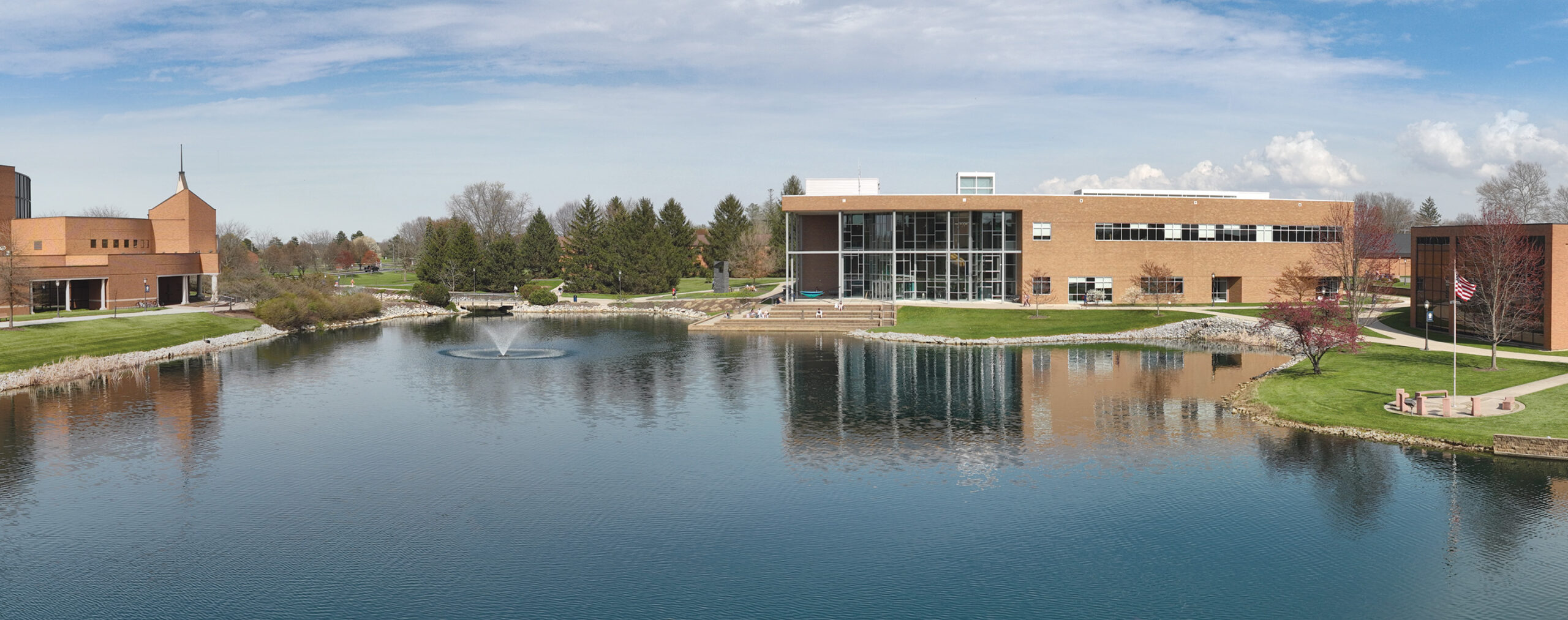On March 25, 2024, I finally decided where I was going to go to college—Cedarville University. I had been torn between two universities, but, during my tour that day, I felt a confident sort of peace about choosing Cedarville. As I walked along the sidewalks of campus, I imagined myself being a student here. I saw myself toting around my backpack, smiling at soon-to-be-familiar faces, and waving across the street to friends.
Among the many choices I needed to make—what dorm to live in, what meal plan to choose, what classes to take, etc.—there was one that outranked the rest in importance: choosing my major. My life would not be significantly impacted by my freshman year meal plan, but my choice of major could affect the course of my future. I scoured Cedarville’s online academic catalog, looking at the course requirements for different degree programs. My aversion to math narrowed my options.
Months of consideration went by until finally, before beginning my first semester at Cedarville University, I declared a major in Communication.
In October, halfway through my first semester at Cedarville, I met with my advisor, Dr. Thomson. We got drinks from Rinnova, the campus coffee shop, and sat at a table on the Stevens Student Center patio. The hot, bright sun shone down on us. We chatted for a while about various things, from homesickness to Gilmore Girls. At some point in our conversation, she asked if I had been liking the Communication major so far.
I answered truthfully. I couldn’t comprehensively assess the major since I was only enrolled in two Communication classes, but the topics I was learning about felt too broad. I expressed my concern that I would graduate with an improved general ability to communicate
but would lack practical ways to apply what I learned. I had looked into the major-specific classes ahead, and some of them I already dreaded. However, Communication seemed to be the major that fit me best of the degree programs Cedarville offered. I supposed that a broad major was not necessarily bad, though, since Communication opened the door to a wide-variety of jobs and would apply to all aspects of my life in the future.
Despite this justification, my unease with being a Communication major remained.
Dr. Thomson nodded as I spoke, occasionally interjecting and acknowledging my concerns.
She then asked me the question that would change the course of my college career: “Have you heard of PWID?”
I had not. I wasn’t even exactly sure what she had just said. My head tilted as I copied the funny sound she had just made.
“PWID?”
As soon as I realized she was referring to a major, I was highly skeptical. PWID stands for Professional Writing and Information Design. I had investigated practically every degree Cedarville offered, aside from those that would require me to do math, so I was confident that I would not be interested in what she was suggesting. She went on to describe the program to me—it is in the Department of Communication and focuses heavily on writing, editing, and design. Her explanation slightly piqued my interest. I used to love writing, and I somewhat still did. I’d never had much of an opportunity to really edit, but I often caught grammatical errors in writing. Still, I wasn’t hopeful that I would find a major that fit me better than Communication.
Dr. Thomson was meeting another student right after me, so our time was drawing to a close. She mentioned that the office of one of the PWID professors was right across from hers, and she offered to introduce me to him before her meeting. I figured that it couldn’t hurt (I was going that direction anyway), so I walked with her to the Scharnberg Business and Communication Center.
Dr. Thomson popped her head through Dr. Carrington’s doorway, asking if he had time to talk with a student. Presumably he did, because Dr. Thomson ushered me into his office before she left. Dr. Carrington shook my hand and invited me to sit down. I asked him questions concerning the major, its classes, potential internships, and the type of work graduates go into. His answers sustained my newly formed interest in PWID, but my uncertainty persisted. I’ve never been a fan of change, so I had to be sure of my decision if I was going to switch majors.
Over the next couple of weeks, I considered the PWID major. I spoke with my parents about the decision; they were supportive and encouraging if not incredibly helpful. I figured that I had plenty of time to consider the pros and cons of both majors. However, the time didn’t end up being necessary. As the days passed, I began to feel a confident sort of peace about switching to PWID. The feeling was familiar—not strong, but consistent, compelling me to act, just like I did after walking the concrete sidewalks that ran through Cedarville’s campus seven months prior.
One weekday, more than two weeks after my meetings with Dr. Thomson and Dr. Carrington, I was sitting on my bed in my dorm room. After a few final moments of consideration, I opened my computer and searched for the major change form. Two days later, an email notification came through: “Your Change of Major has been processed and approved.”
The next semester, I enrolled in my first two PWID classes. I use the skills that I learned from both to this day.
Since then, PWID has continued to provide me with applicable information, practical experiences, and valuable connections. My gratitude to God grows alongside my confident sort of peace in this decision: I am a PWID major.



